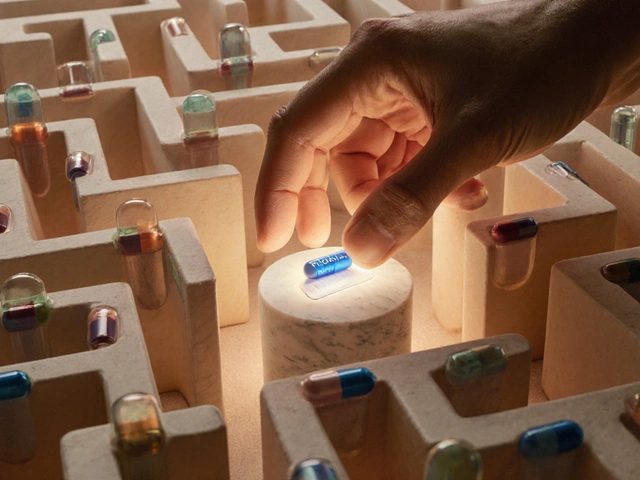
Eye Supplements: What Works and How to Choose the Right One
If you’ve ever Googled "how to protect my eyes," you’ve probably seen a long list of pills and powders. The market is full of promises, but not all products deliver. Below you’ll get a clear rundown of the ingredients that have real backing, the red flags to watch, and simple steps to pick a safe, effective eye supplement.
Key Ingredients to Watch
Most eye supplements focus on a few nutrients that research ties to retinal health and visual clarity. Here’s the quick cheat‑sheet:
- Lutein and Zeaxanthin – Carotenoids that sit in the macula and filter harmful blue light. Studies show they can improve contrast sensitivity and reduce glare.
- Vitamin A (as beta‑carotene or retinyl palmitate) – Essential for night vision. Deficiency can cause night blindness, so a modest dose supports normal function.
- Omega‑3 fatty acids (EPA/DHA) – Found in fish oil, they help keep the retinal cell membranes flexible. DHA is especially important for the photoreceptor cells.
- Vitamin C and E – Antioxidants that protect eye cells from oxidative stress, a factor in age‑related macular degeneration (AMD).
- Zinc – Works with vitamin A to help the retina absorb light. The AREDS2 study highlighted zinc’s role in slowing AMD progression.
If a supplement lists most of these, you’re looking at a solid base. Beware of products that only tout exotic herbs without any of the core nutrients.
How to Choose a Safe Eye Supplement
Picking a supplement is easier when you follow a few practical checks:
- Check the label for exact amounts. Too much vitamin A can be toxic, especially for pregnant women. Aim for ≤10,000 IU per day unless a doctor says otherwise.
- Look for third‑party testing. Symbols from USP, NSF, or ConsumerLab mean the product was checked for purity and potency.
- Read the ingredient list. Avoid fillers like artificial colours or unnecessary herbs that can cause allergies.
- Consider your health needs. If you have dry eye, omega‑3 may be more useful. For macular worries, lutein/zeaxanthin take priority.
- Buy from reputable retailers. UK‑based pharmacies or trusted online stores reduce the risk of counterfeit products.
Once you have a product that checks these boxes, start with the lowest recommended dose. Give your body a couple of weeks, then see if you notice less eye strain or better night vision. If you experience any side effects – upset stomach, skin rash, or unusual headaches – stop and talk to a pharmacist.
Remember, supplements are not a cure‑all. A balanced diet rich in leafy greens, oily fish, and colourful fruits still provides the best foundation for eye health. Supplements simply fill the gaps when your meals fall short.
Bottom line: Focus on lutein, zeaxanthin, omega‑3, vitamin A, C, E, and zinc. Choose a product tested by a reputable lab, keep an eye on dosages, and pair it with a healthy diet. With these steps, you’ll give your eyes the support they need without wasting money on gimmicks.
-
21 Sep






